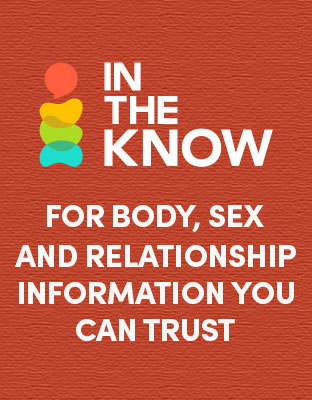Hepatitis B
What is hepatitis B?
Hepatitis B is a viral infection that can lead to serious disease of the liver. It is the most common liver infection in the world. The liver is an important part of the body's digestive system and performs functions such as digesting fats and filtering toxins.
How do you get hepatitis B?
Hepatitis B is passed on through bodily fluids including blood, semen, vaginal fluid and sometimes saliva. Hepatitis B can be transmitted to another person through:
- oral, anal or vaginal sex without a condom
- sharing sex toys
- sharing unsterile needles including body piercing or drug injecting equipment
- getting a tattoo or body piercing where the equipment wasn't sterilised between people
- sharing toothbrushes or razors
- pregnant mother to unborn baby
- kissing (in rare cases) depending on how much virus is in saliva
How can I protect myself from hepatitis B?
The best way to prevent getting hepatitis B is to be vaccinated.
- the hepatitis B vaccination is effective in 95% of cases and is recommended for all babies and adolescents and other people at high risk of exposure – ask your doctor
- if you have been vaccinated it is important to check that you have an adequate level of immunity
- use condoms for all sex
- only use sterile needles and syringes for injecting drugs
- only have tattoos and piercings from licensed trained professionals. Beware of getting these done overseas
- don't share razors and toothbrushes
What are the symptoms of hepatitis B infection?
Symptoms of hepatitis B are different depending on whether you have acute or chronic hepatitis B infection.
Acute hepatitis B
Many people with acute hepatitis B have no symptoms and never realise they had the infection. Most people clear the infection themselves within 6 months without any treatment.
Symptoms can include:
- loss of appetite
- nausea and vomiting
- tiredness
- abdominal pain
- muscle and joint pain
- jaundice – yellowish eyes and skin, dark urine, pale coloured stools
Chronic hepatitis B
Chronic hepatitis B is when infection has persisted for more than 6 months. Most people with chronic hepatitis B have no symptoms. If they do have symptoms, they can include:
- tiredness, depression and irritability
- pain in the liver – upper right side of the abdomen
- nausea and vomiting
- loss of appetite
- joint aches and pains
People with chronic hepatitis B have a significant increased risk of developing liver cancer.
How do I get tested for hepatitis B?
Hepatitis B testing is done with blood tests that look for markers of the hepatitis B virus in your blood. You can ask your doctor about having a blood test for hepatitis B.
How is hepatitis B treated?
There is no cure for hepatitis B, however, in most cases of acute hepatitis B the immune system of adults will be able to clear the virus and you will recover over time. A balanced diet and limited alcohol is often recommended. You should have no sexual contact during acute hepatitis B unless your partner is immune to it.
Around 5% to 10% of people who get infected as adults will develop chronic hepatitis B. There are antiviral treatments that can help to clear the virus and reduce liver damage.
If chronic hepatitis B is not treated, illnesses such as liver disease or liver cancer can develop later in life.
If you have been exposed to hepatitis B, and don't know if you have been vaccinated, there is an injectable antibody (called hepatitis B immunoglobulin) which can help reduce the risk of acute infection. Ideally it should be given within 72 hours (3 days) from exposure to the virus. You should talk to your doctor to get more information if you think you have been exposed to hepatitis B.
What is your responsibility if you have hepatitis B?
If you have hepatitis B it is your responsibility to let people who may have been exposed (e.g. people you have had unprotected sex or shared needles with) so that they can be tested and treated if needed. Contact tracing can be done confidentially – just ask your doctor or nurse about it or visit the letthemknow.com.au website.
For more information
Family Planning NSW Talkline – www.fpnsw.org.au/talkline or 1300 658 886
National Relay Service (for deaf people) – 13 36 77
TIS National's interpreting service – 131 450
Visit your nearest Family Planning NSW clinic – www.fpnsw.org.au/clinics
Hepatitis Australia – www.hepatitisaustralia.com or 1800 437 222




